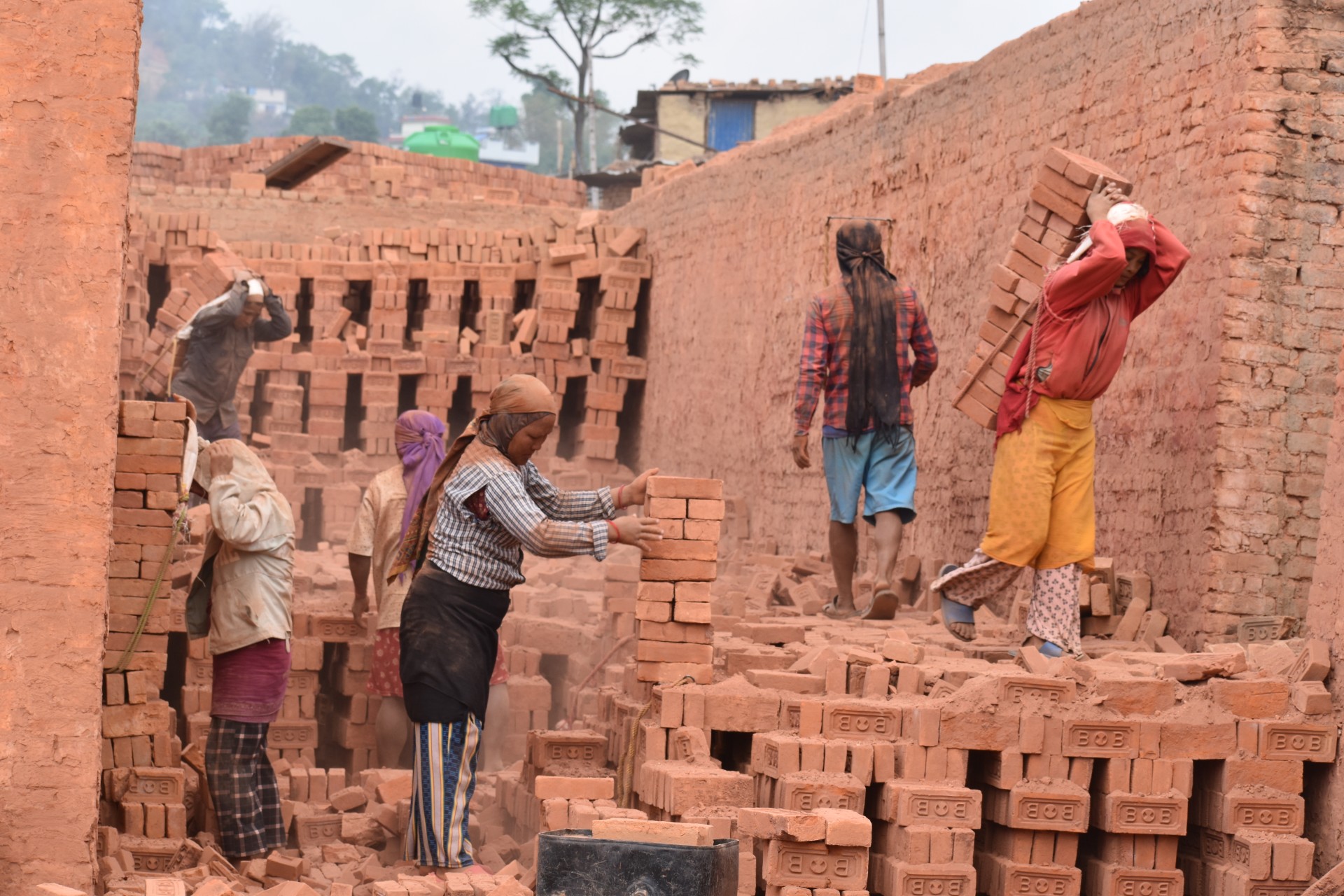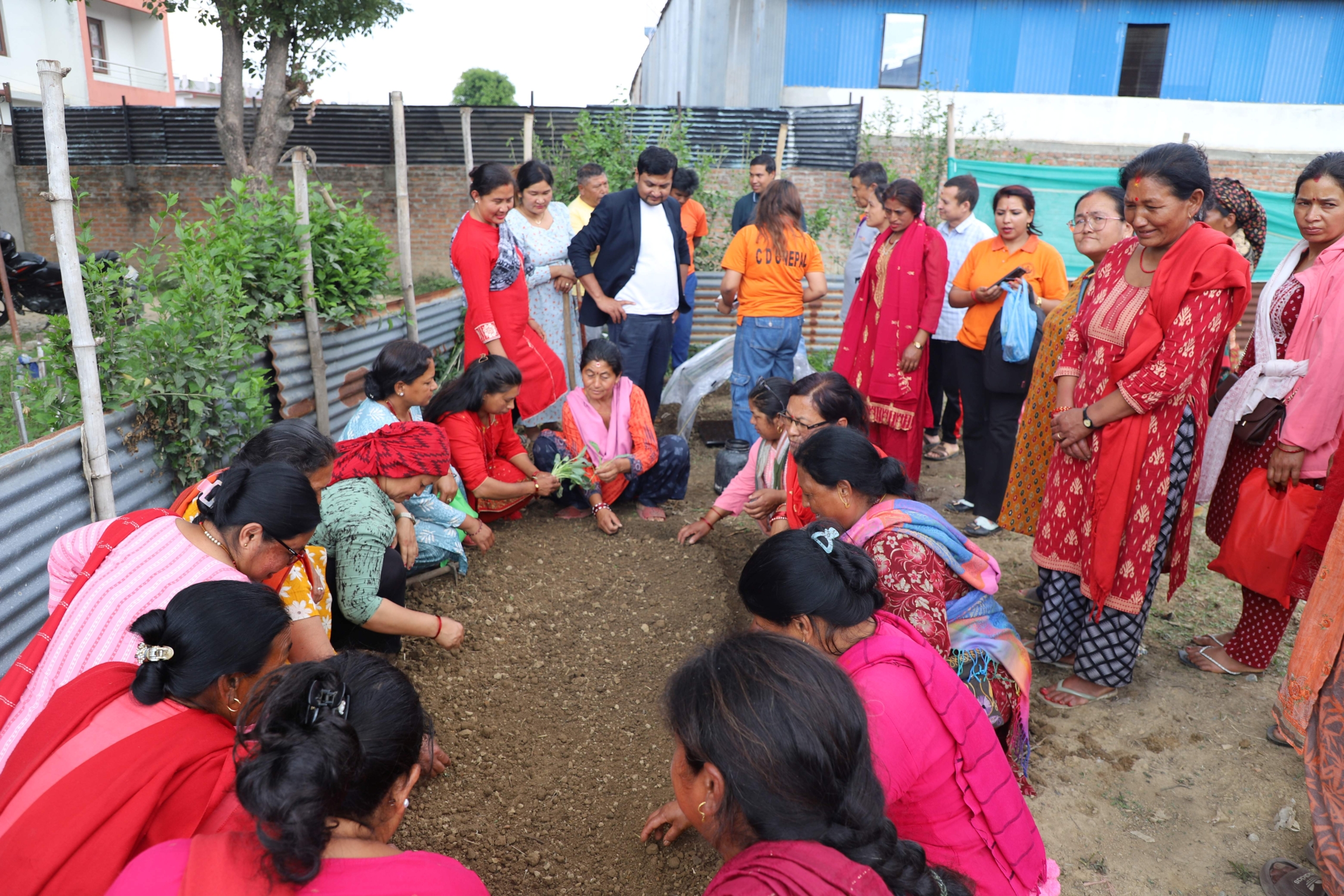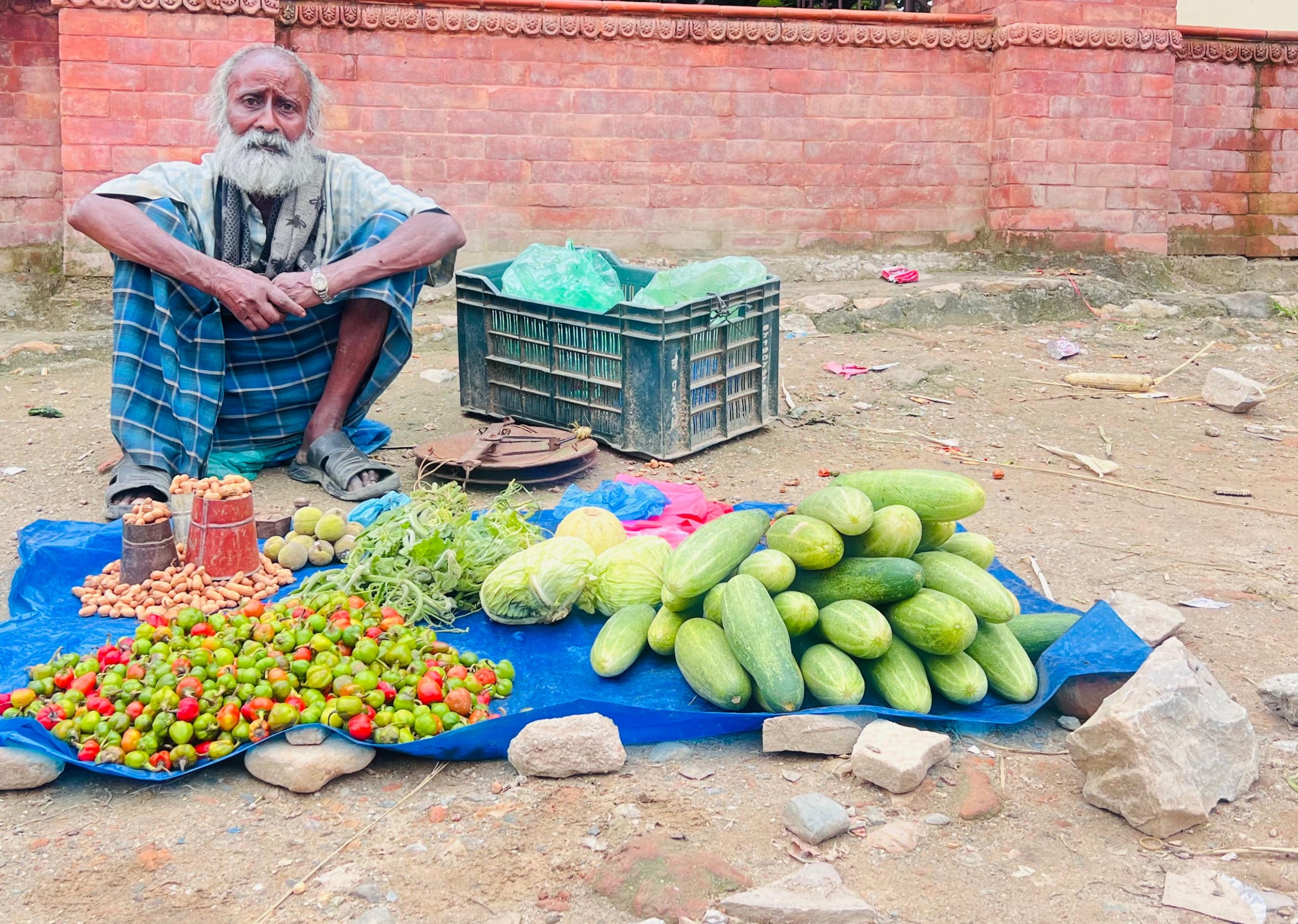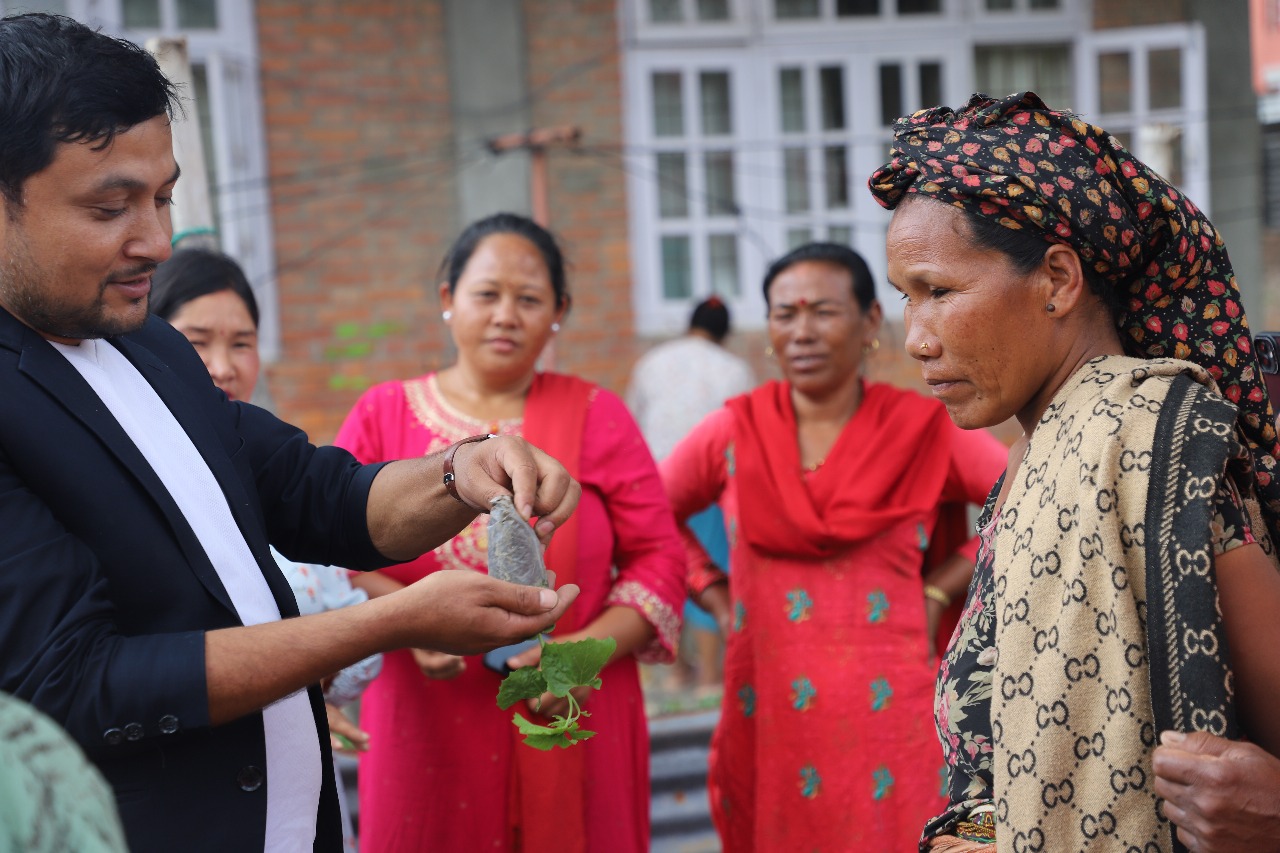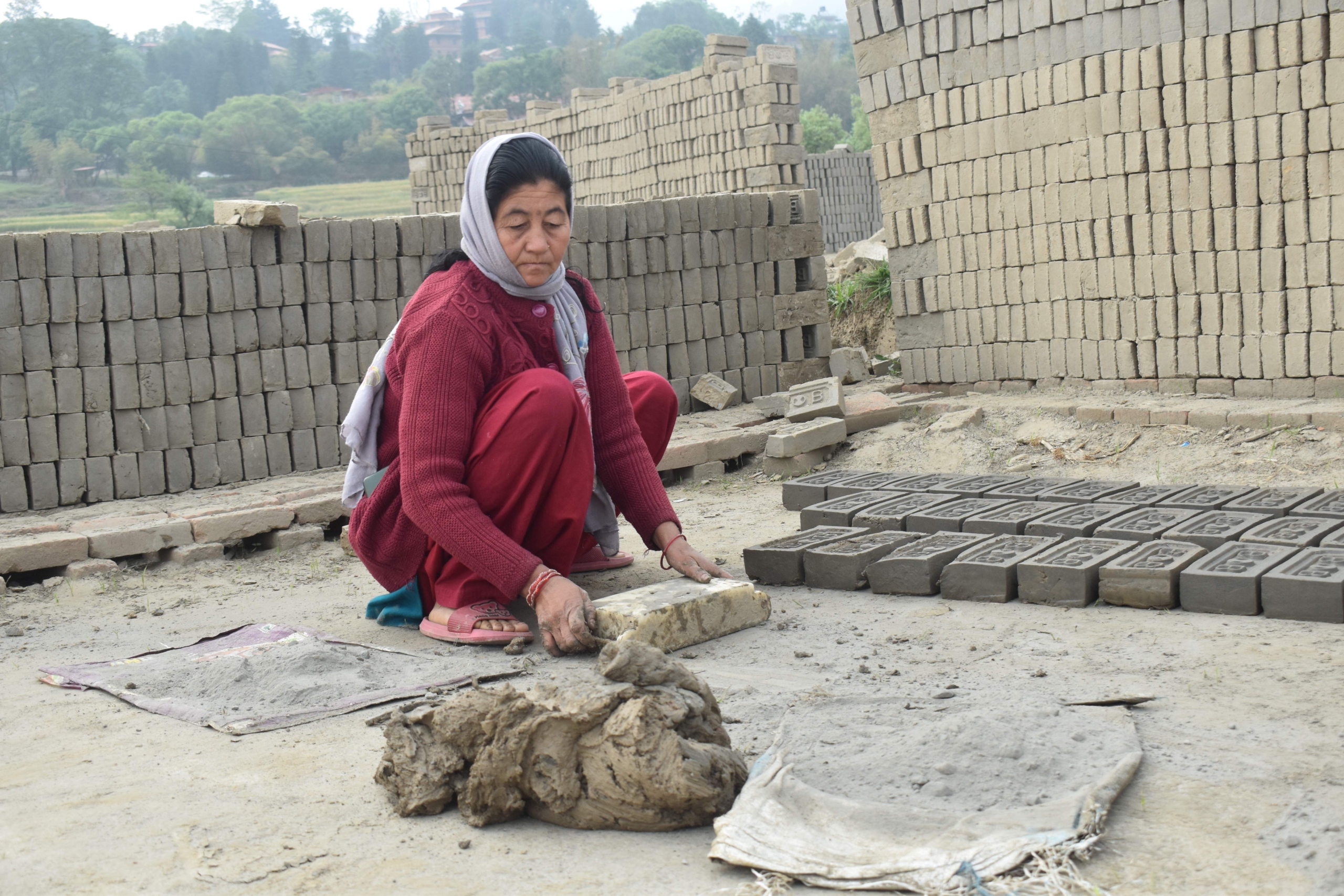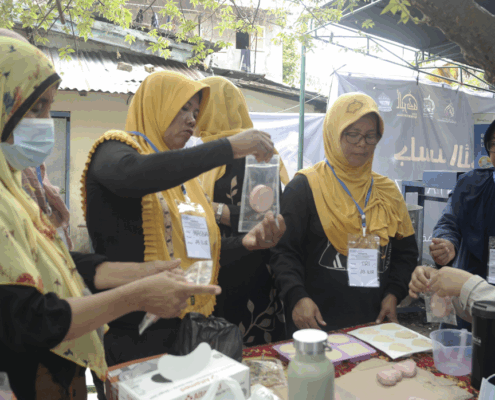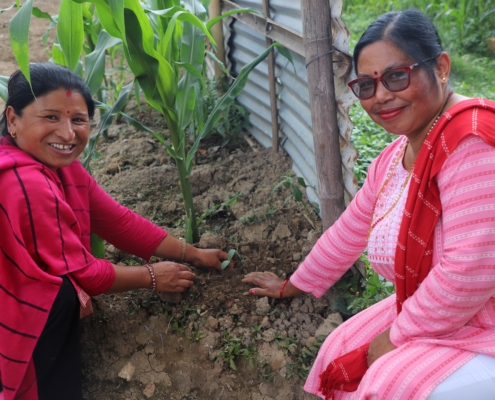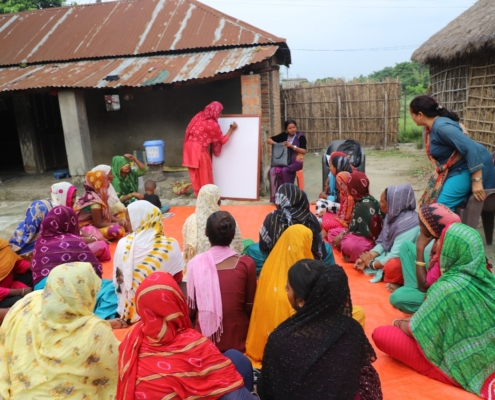A New Path for Women in Lalitpur
In the heart of Nepal’s Lalitpur district, where brick kilns and carpet factories have long defined the economic landscape, a quiet transformation is taking place. Women once trapped in cycles of exploitation and unsafe work are cultivating something new, not just vegetables, but independence, dignity, and hope.
Thanks to the Promotion of Women Empowerment and Rights (POWER) project, run by Care and Development Organisation (CDO Nepal) with support from Palladium’s Our Communities Fund, women are beginning to transition from hazardous factory labour to safer, income-generating opportunities like organic farming and incense-making.
The Invisible Workforce Behind Nepal’s Factories
Godawari Municipality Ward 14, where the project is based, is home to two brick kilns and three carpet factories and to hundreds of women working under difficult conditions. Many are internally displaced, having fled natural disasters or economic instability. Some lost their homes in landslides. Others migrated in search of work, only to find themselves earning low wages in environments rife with gender-based violence, health hazards, and financial insecurity.
These women are largely from historically marginalised ethnic groups and often have little to no access to education or healthcare. Without alternatives, they rely on unsafe, exploitative labour to survive.
Women working in brick factory. Photo credit: CDO Nepal.
Women gathered for a hands-on training on soil and bedding preparation. Photo credit: CDO Nepal
A Practical Path to Empowerment
CDO Nepal designed the POWER project to break this cycle by helping women build new livelihoods rooted in safety, autonomy, and sustainability. The first phase is reaching over 100 women from brick kilns, carpet factories, and from the wider marginalised community.
Participants are receiving training in organic kitchen gardening and traditional incense making, as well as marketing and entrepreneurship. Some have already received seed money and agricultural tools from plastic for tunnel farming to seasonal seeds and compost to launch their own micro-enterprises.
Early signs of success are promising. In just a few months, women have established small farms, started selling vegetables, and begun to reinvest in their families and communities.
For Sarala, the project has changed everything, not just for her, but for her family. She had long worked as a domestic labourer, while her husband earned meagre wages as a manual labourer. Her father-in-law, Nawashi, 70, had been displaced 15 years ago after a landslide destroyed his home. The trauma of that loss left him battling mental health issues, and the family struggled to meet eve n their basic needs.
When she joined the POWER project’s training, she seized the opportunity. With seed money from CDO Nepal, she leased a small plot of land and built a plastic tunnel using locally sourced bamboo. She received seeds, learned organic farming methods, and applied what she’d learned with dedication. Soon, her family joined in. Her husband helped with land preparation, and Nawashi began selling the vegetables in their neighbourhood.
“My health has improved,” Nawashi says. “I help my family sell vegetables. I don’t feel like a burden anymore. Now I have money to buy my medicine. I’m very happy.”
Nawashi selling vegetables from his daughter in laws newly established garden. Photo credit: CDO Nepal
Karma at the training workshop. Photo credit: CDO Nepal
Karma Kumari Pun once worked long hours as a brick kiln labourer. Through the POWER project, she received training, seeds, and seedlings to start her own vegetable garden. She has since harvested enough cucumbers to earn NPR 7,000 at her local farmers’ market.
The POWER project’s approach is as much about social change as it is about income generation. The women involved are gaining skills and claiming space as decision-makers in their homes and communities.
“Now my three sons help me in the garden after school,” says Laxmi Khatri, another participant and former brick kiln worker. “In three months, I’ll be selling spinach, cucumber, and tomato. I’m working hard to save some income. Thank you to CDO Nepal for empowering me.”
Laxmi making bricks at Bolham Brick Factory. Photo credit: CDO Nepal
By investing in women like Sarala, Karma and Laxmi, the POWER project is not only reducing reliance on exploitative industries, but also cultivating new networks of care, shared labour, and local knowledge.
A special thanks to Palladium for funding the Let’s Make It Possible (LMIP) program which includes the Our Communities funding provided to CDO for this project.


